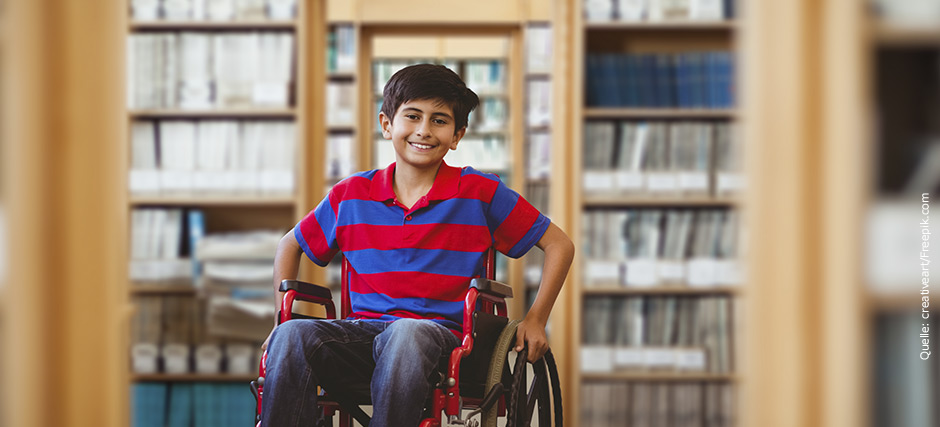For a New EU Budget with an Independent Youth Programme!
Position Paper of the Arbeitsgemeinschaft für Kinder- und Jugendhilfe – AGJ (Child and Youth Welfare Association)1
Position Paper PDF
The European Union budget is integrated into a Multiannual Financial Framework (MFF - currently 2007-2013), which the European Parliament, the European Commission and the Council as the representation of the governments of the EU member states agree inter-institutionally. Regarding the MFF 2014-2020, crucial opinion forming processes are currently taking place at a European level and within the member states. In mid 2011, the Commission will make use of its right of initiation and present a first proposal. In this proposal, the political priorities of the EU to be managed with the budget and therefore also fundamental considerations of the Commission regarding the funding programmes starting in 2014 are going to be incorporated. Further fundamental reconciliation is currently taking place within the governments of the member states2 and in the relevant special committee of the European Parliament.
With a view to future support in the youth field, a tendency of opinion is becoming apparent within the Commission against the independence of an EU Youth Programme. The background to this is the targeted orientation of all EU measures towards the growth and economic strategy “Europe 2020” and therefore an orientation towards the flagship initiatives and economic, educational, employment and socio-political core aims included there. Thus a
1 The AGJ – founded in 1949 – is an alliance of approximately 100 German child and youth welfare organizations and institutions at federal level.
Members are the youth organizations and youth councils, the social welfare organizations, specialized child welfare organizations, the federal-state administrations responsible for child and youth welfare, the working committee of the federal-state youth offices and institutions and organizations dealing with professionals and qualification. For more information see www.agj.de. The AGJ is member of the European network Eurochild (www.eurochild.org).
2 For Germany cf. Position der Bundesregierung zu einem künftigen EU- Jugendprogramm ab 2014 (Position of the Federal Government on a future EU Youth Programme as of 2014).
transfer of selected elements of the Youth Programme into an “integrated education programme” seems reasonable to the Commission, and in turn this would be oriented towards the flagship initiative “Youth on the Move”. The central objectives of “Youth on the Move“ are to lower the school dropout rate, to raise the proportion of higher school-leaving qualifications and to reduce unemployment.
With this positioning, the AGJ supports an independent EU Youth Programme within the Multiannual Financial Framework 2014-2020. The position paper highlights the indispensible contributions of such a programme to performing contractual tasks of the EU, to promoting collaboration on youth policy in Europe, and to guaranteeing opportunities and the participation of all young people both in non-formal learning and social cohesion. Furthermore the AGJ argues that a reduction or even dissolution of a programme of such an enormous variety and awareness level could lead not least to a loss of credibility of the EU’s political acting in the eyes of its central target group youth.
An indispensible instrument for performing contractual tasks of the EU
A specific aim of the EU Youth Programme that has been targeted with success is the strengthening of active citizenship, solidarity and the engagement of young people in democracy as well as the promotion of their mobility and cross-border cooperation in terms of a unified youth policy approach.[3] Based on the principles of participation and individuality – such as in the framework of exchange and democracy projects developed and independently implemented by young people themselves – the EU Youth Programme makes an indispensible contribution to the performance of the contractual task of the EU to involve young people in democratic life in Europe4. Thereby it contributes not least to the formation of a European awareness and to the constitution of a European Union characterised by the tolerance and variety of its citizens.
3 For the effects of the programme cf. Ergebnisberichte verschiedener Evaluationen zum EU-Programm JUGEND IN AKTION (Summary reports of different evaluations of the EU programme YOUTH IN ACTION) (www.jugendfuereuropa.de).
4 Art. 165 TFEU (Treaty on the functioning of the European Union):(2) The activities of the Union have the following aims: (...) encouraging the development of youth exchanges and of exchanges of socio-educational instructors, and encouraging the participation of young people in democratic life in Europe (...)
With the intended integration of the Youth Programme into an education programme motivated by the growth and economic strategy, there is a danger of an exploitation and reduction of the Youth Programme for the purpose of direct economic usability.
Significant instrument for youth policy cooperation in the EU
Over 20 years ago, youth policy cooperation in Europe started out with the EU Youth Programme. Due to lacking regulation competencies in the field of youth policy, in addition to this programme the EU in principle can only make use of political coordination.
Starting from the Commission’s White Paper “A New Impetus for European Youth” and the related “Open Method of Coordination” (from 2001), via the European Council’s “European Youth Pact” (2005) and the initiative of the Commission “An EU Strategy for Youth - Investing and Empowering” (2009), through to the “EU Youth Strategy” of the Council of the European Union, youth policy coordination has for years been successfully driven forward in the EU. With the renewed framework for youth policy cooperation in Europe (2010-2018) there is for the first time a concerted holistic EU strategy for youth, which can serve as a basis for a common youth policy in Europe. In these political contexts, the EU Youth Programme has increasingly taken on the role of an essential implementation instrument with the purpose of promoting young people without a view restricted to their “human capital”.
The AGJ supports an independent EU Youth Programme on the basis of the EU Youth Strategy, as its holistic approach includes the relevant priorities of the “Europe 2020” strategy and furthermore enables a welcome youth policy dimension for the EU. From the viewpoint of the AGJ, a considerable reduction or even dissolution of the programme would contribute to a significant weakening of the youth policy profile of the EU and not least to a loss of credibility of its activities in particular in the eyes of the central target group youth.
Key for opportunities and participation
The AGJ claims the preservation of a programme anchored in youth policy in the sense of a policy for all young people regardless of their social and cultural background, their formal education context, their gender or possible disability. The implementation of the Youth Programme in the supporting structures of
child and youth welfare complies with the right of children and young people to equal participation opportunities.
The EU has provided an appropriate European cooperation framework for youth policy with their Youth Strategy 2010-2018. Its fields of activity and general objectives, namely creating more possibilities and more equal opportunities for all young people in education and in the employment market as well as promoting the community engagement, social integration and solidarity of all young people, are suited in the view of the AGJ to creating a starting point for the structuring of the new EU Youth Programme.[5}
Contribution to non-formal learning and social cohesion
Because of the special access to young people, the impact of non-formal learning and the principles of volunteering – such as in the context of youth meetings that take place completely outside of school and training – the EU Youth Programme promotes not least employability and makes a significant contribution to the social cohesion, activation and strengthening of young people. The decentralised structure of the programme and the direct contact with young people coming along also contribute to this impact.
Against this background, the transfer of the EU Youth Programme or of parts of it into an “integrated education programme” and therefore the transfer of programme responsibility at the European and national level into the respective education department are in the view of the AGJ professionally and politically unacceptable.
Variety of services and awareness level
Within the Financial Framework 2007-2013 and its Youth Programme YOUTH IN ACTION, the EU provides 885 million Euros each year for 150,000 participating young people in a total of 33 countries. Of this over 200 million Euros are used for projects with participants from Germany; this corresponds annually to around 800 activities for a total of 11,000 young people and 2,000 youth workers.
5 For the perceptions of the AGJ on the structuring of the programme in detail: cf. Anforderungen an das künftige EU-Jugendprogramm ab 2014. Stellungnahme der Arbeitsgemeinschaft für Kinder- und Jugendhilfe – AGJ im Rahmen der öffentlichen Konsultation der EU-Kommission über das zukünftige europäische Jugendprogramm. (Requirements of the future EU Youth Programme from 2014. Statement of the Arbeitsgemeinschaft für Kinder- und Jugendhilfe – AGJ in the framework of public consultation by the EU Commission regarding the future European Youth Programme (28th October 2010).
The enormous coverage and the high level of awareness of the EU Youth Programme is proved furthermore by the fact that in 2010 around 7,000 individuals and organisations have submitted their opinions on a future EU Youth Programme to the EU Commission within its consultation for the next EU programme generation. This represents the highest ever participation rate of consultation processes of the European Commission.
Against the background of the EU budget situation and the fact that “youth” and “education” are mostly perceived as of different political significance, a considerable reduction of the overall funds in the youth field would be expected to result from the withdrawal of the independence of the EU Youth Programme. Those affected would include youth meetings, youth initiatives, the European Voluntary Service, youth projects for participative democracy and projects with neighbouring partner countries. Also included in the toolkit of the current Youth Programme are training and networking activities for youth workers and meetings of young people with those responsible for youth policy.
The Arbeitsgemeinschaft für Kinder- und Jugendhilfe – AGJ (Child and Youth Welfare Association) campaigns for the consideration of an independent EU Youth Programme within the MFF from 2014 to at least the current budget and irrespective of the announced overall reductions in the EU budget. The AGJ agrees with the Federal Government regarding the necessary continuation of an independent EU Youth Programme and calls on all persons involved to support an appropriate allocation and the preservation of youth-specific objectives, formats and decentralised procedures within the inter-institutional agreements regarding the Multiannual Financial Framework from 2014.
Arbeitsgemeinschaft für Kinder- und Jugendhilfe – AGJ (Child and Youth Welfare Association), Board of Directors
Berlin, 6th/7th April 2011








